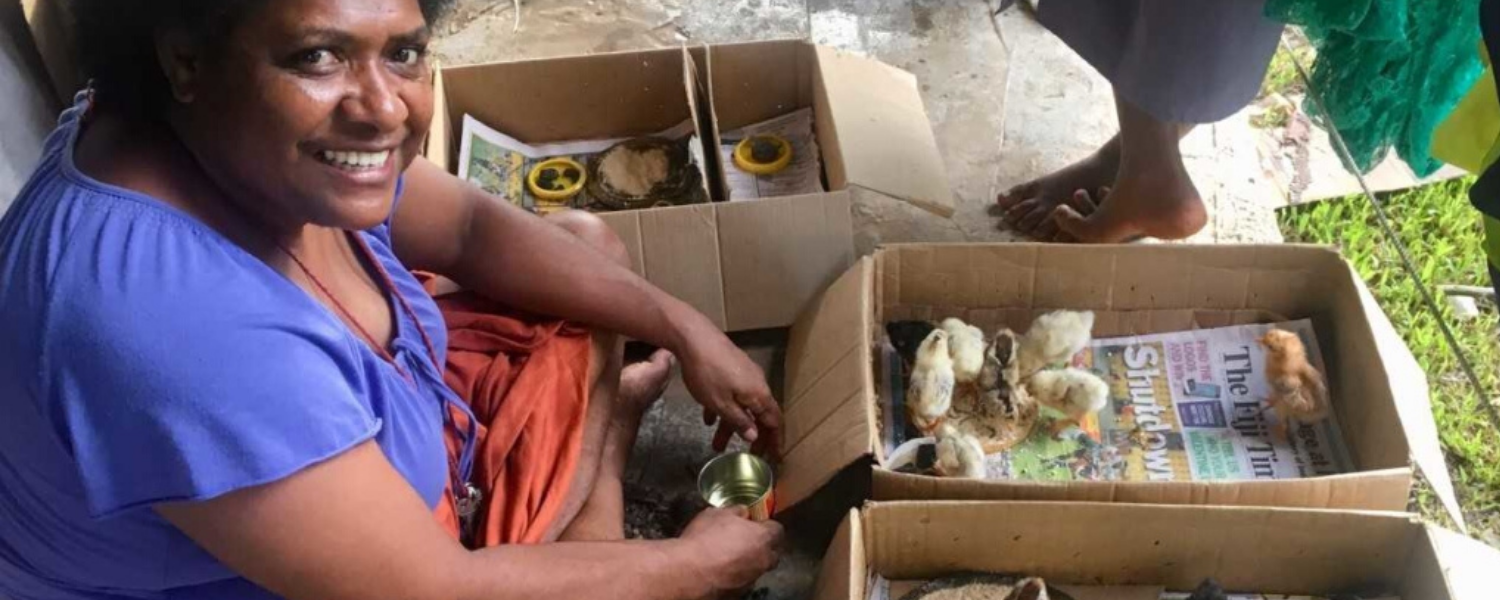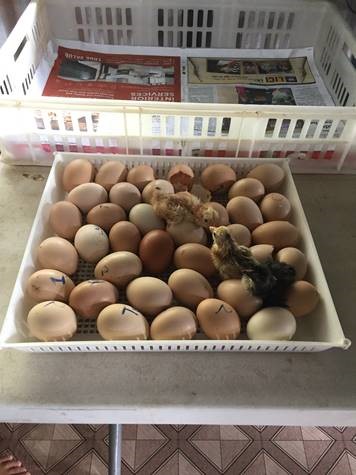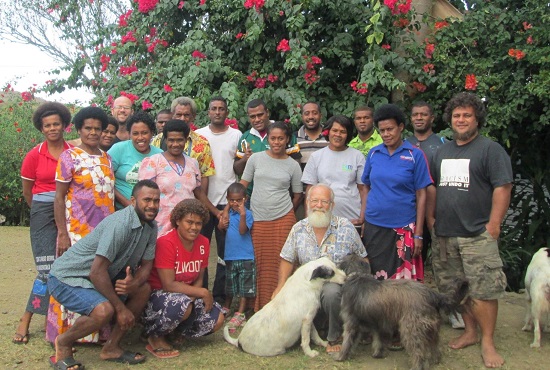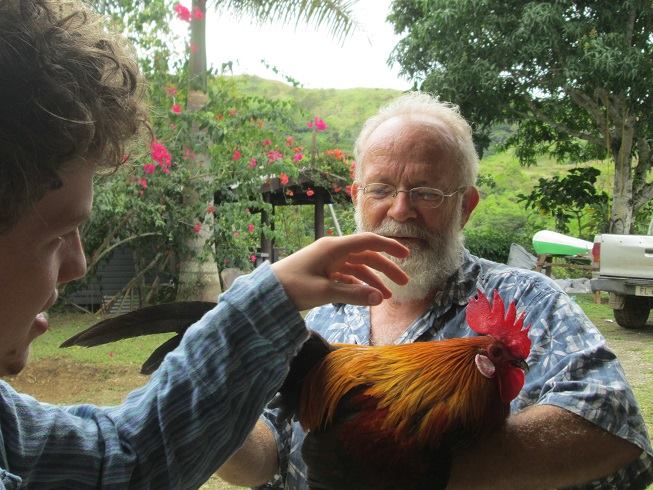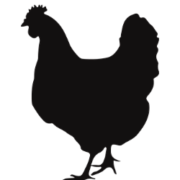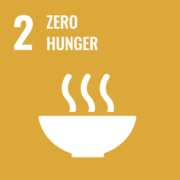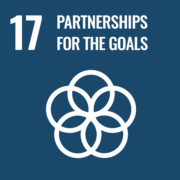Fijians rely heavily on imports for up to 50% of their food consumption. Poultry ranks second to seafood as the most important protein source for South Pacific Nations, but the industry is dominated by commercial factory-type farms completely reliant on imported chicks. These are poorly suited to village conditions, require expensive imported feeds to ensure productivity, and do not breed well in local conditions, further exacerbating food insecurity.
The project aims to meet the increased demand for climate-adapted chickens for cyclone rehabilitation and food security in South Pacific communities. Village farmers have well-adapted local breeds, but they are not very productive. Flocks are small and chicks are almost never available for sale.
Through selective breeding of local chickens, SELF has created a diverse and more productive breed that is well adapted to local conditions, able to thrive by foraging on locally available foods and that have great potential for improving food and nutrition security in Fiji and other Pacific islands.
Since 2013, SELF has hatched and distributed over 37,000 chicks to poor rural people across Fiji. In 2019, an upgraded hatchery was established for SELF’s new breeding facility to increase production to meet the immense and urgent needs across a wide regional area.With the additional funding, SELF hopes to eventually increase production to 10,000 chicks per year for local and regional supply.
During the 2020 COVID-19 pandemic, the importation of day old chicks have virtually stopped, making demand for improved local breed birds even higher.

